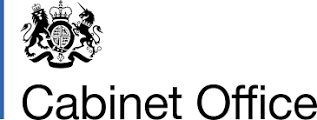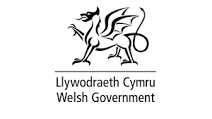PRESS RELEASE : Deputy Prime Minister Oliver Dowden unveils A-Z of serious risks facing the UK [August 2023]
The press release issued by the Cabinet Office on 3 August 2023.
Deputy Prime Minister Oliver Dowden has unveiled the National Risk Register.
- Deputy Prime Minister Oliver Dowden announces new National Risk Register to help UK prepare for risks like energy security
- Government has declassified more information and published online tool to better prepare the public and businesses for potential risks
- Risks include disruption to energy supplies, as Register is launched by Deputy Prime Minister on visit to installation of world’s largest future offshore wind farm which will strengthen UK resilience
A register setting out the government’s latest assessment of key risks to the United Kingdom has today been published as part of ongoing cross government work to better prepare the public and businesses for the threats facing the country.
Deputy Prime Minister Oliver Dowden has unveiled the National Risk Register (NRR), an assessment of the risks facing the UK. The Register outlines 89 threats that would have a significant impact on the UK’s safety, security or critical systems at a national level.
This latest version of the NRR is more transparent than ever before and publicly shares previously classified information about a number of potential risks. These include:
- Disruption to energy supplies following Russia’s full scale invasion of Ukraine
- Malicious uses of drones to disrupt transport and other critical operations
- Threats to undersea transatlantic telecommunications cables used for internet and communications
The threat to global energy supplies is one of the new publicly listed risks in the 2023 Register. Dowden is launching the Register on a visit to Able Seaton Port in Hartlepool, hosted by energy firm SSE. It comes as the first of over two hundred 260m tall wind turbines is installed at Dogger Bank wind farm, which will be the largest in the world when completed by SSE and its partners Equinor and Vårgrønn. Helping increase the UK’s energy independence.
The Government has robust plans in place for each of the different risks and is also urging businesses, local government and voluntary groups to play their part in helping plan for them. By publishing an online digital tool for the first time the Government is making risk details more accessible and easier to navigate.
The NRR’s publication is the latest example of this transparent “whole of society” approach to national resilience, set out in the recently published UK Government Resilience Framework and National Cyber Strategy. It also follows the recent launch of the UK-wide Emergency Alerts system.
Deputy Prime Minister Oliver Dowden said:
This is the most comprehensive risk assessment we’ve ever published, so that government and our partners can put robust plans in place and be ready for anything.
One of those rising risks is energy security. We’ve installed the first turbine at the future world’s largest offshore windfarm, which will provide secure, low-cost and clean energy for the British people – enabling us to stand up to Putin’s energy ransom.
Visiting Able Seaton Port, the Deputy PM will see the enormous wind turbine components being readied for loading onto a specialised floating platform, taller than the Eiffel Tower, which has been created to install the wind turbines onto the seabed,
When complete, 277 turbines will be capable of powering up to 6 million homes in the UK. The turbines include British steel manufactured in Wales and processed in Corby and Hartlepool.
The publication of the Register follows the Government outlining plans to tackle various risks outlined in it. In June, it published the Biological Security Strategy to strengthen the UK’s defences against biological threats such as infectious diseases. And we have also published the Resilience Framework, which strengthens the coordinating structures that the UK uses to prepare for emergencies.
Deputy National Security Advisor, Matt Collins, said:
A comprehensive understanding of the risks we face is critical to keeping the UK safe. This edition of the NRR, based on the Government’s internal, classified risk assessment offers even more detail on the potential scenarios, response and recovery options relating to the risks facing the UK; ranging from terrorism to conflicts and natural disasters.
SSE CEO, Alistair Phillips-Davies said:
Dogger Bank is one of the biggest and most complex engineering and infrastructure projects anywhere in the world. Our progress here with our joint venture partners Equinor and Vårgrønn, proves that offshore wind at massive scale is now mainstream and will help turbo-charge the transition to the cheaper, cleaner and more secure energy system we all want to see. It is action, not ambition, that will secure our energy future and this project shows action on a massive scale. But we will need many more Dogger Banks to achieve our goals and we look forward to working with government to bring forward more projects at pace.
Resilience First is made up of more than 600 major businesses operating in the UK across multiple sectors, providing the ways and means to drive resilience at scale.
Resilience First Chair and Board Director, Rick Cudworth, said:
We welcome the new National Risk Register – it’s a vital resource to improving the UK’s resilience and it really delivers on providing greater transparency as well as a developed and shared understanding of the risks we all face. Providing invaluable information, this document gives us the power to invest, prepare, and respond more effectively. With more detail than previously, and specific scenarios, assumptions and response capabilities set out, we encourage organisations and resilience professionals to use it to stress test and strengthen their own resilience as we all move forwards together.
Head of Risk Management Policy at independent think tank The Centre for Long-Term Resilience James Ginns commented:
We welcome the publication of a more transparent National Risk Register which recognizes the increasingly volatile risk environment we face, the imperative to increase our preparedness, and the pandemic risk posed by novel pathogens. It’s encouraging that the government is committed to further assessing and mitigating vulnerabilities to acute risks. We look forward to supporting their work in identifying and assessing chronic risks and related vulnerabilities, especially in AI and biosecurity, in order to reinforce our resilience.


